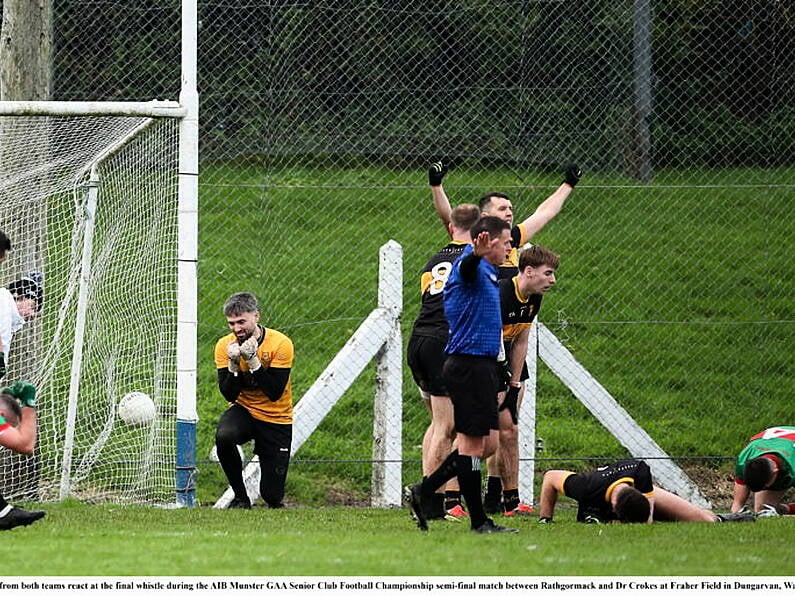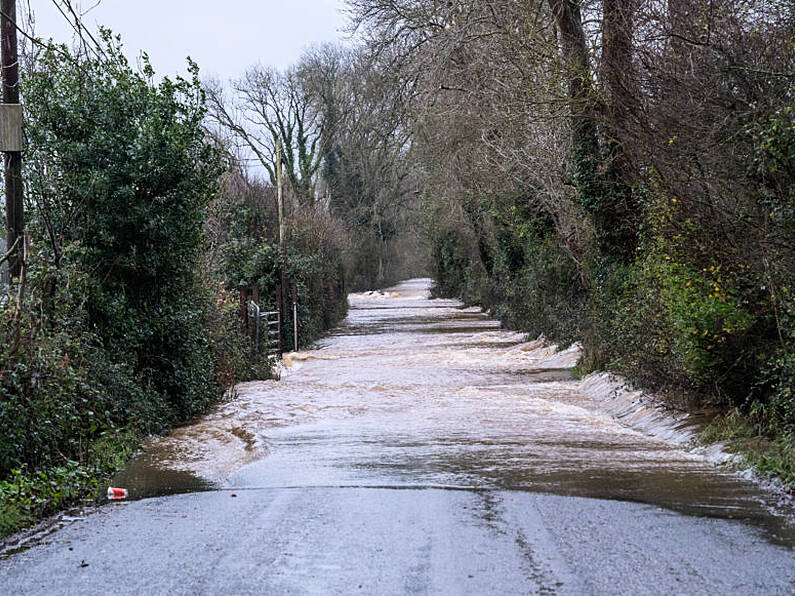The National Transport Authority has today published the findings of the first-ever survey of walking, wheeling and cycling in Waterford Metropolitan Area, which reveals that 52% of residents walk or wheel (meaning the use of a wheelchair or mobility scooter) at least five times a week, while 16% of residents cycle at least once a week.
The Walking and Cycling Index provides the largest-ever assessment of walking, wheeling and cycling in Ireland. Delivered in collaboration with Waterford City and County Council and Kilkenny County Council, the National Transport Authority and sustainable transport charity Sustrans, the Index was expanded last year to include Waterford alongside Cork, Limerick/Shannon, Dublin and Galway Metropolitan Areas. 18 city regions in the UK also produce reports.
The Waterford Metropolitan Area Walking and Cycling Index is based on an independent demographically representative survey of more than 1,100 residents from across Waterford Metropolitan Area aged 16 and above, not just those who walk, wheel or cycle. The Metropolitan Area is centred on the City of Waterford and its suburbs including Slieverue, and Ferrybank in Kilkenny.
It reveals that 68% of residents are in favour of additional investment in walking and wheeling infrastructure while 63% of residents are in favour of additional investment in cycling infrastructure. This comes amid a growing demand for active travel with 53% expressing their desire to walk, wheel more in the future, and 31% expressing a desire to cycle more.
Key findings from the 2023 Waterford Metropolitan Area Walking and Cycling Index:
- 52% of adult residents walk 5 or more days a week, 64% use a car 5 or more days a week while 16% of adults cycle at least once a week.
- 76% of residents support building cycle tracks physically separated from traffic and pedestrians even where that means less room for other traffic.
- Every day those who walk and cycle takes nearly 16,000 cars off the road in the Waterford Metropolitan Area. If all of these cars were in a traffic jam it would tail back 78 kilometres equivalent to the distance from Waterford City to Rosslare.
- Residents walking, wheeling and cycling create an annual economic benefit for individuals and the Waterford Metropolitan Area of €80.5 million.
- Walking and cycling improve public health in the Waterford Metropolitan Area and saves the HSE €2.67 million equivalent to the cost of over 47,900 GP appointments.
- Those walking and cycling instead of driving, save greenhouse gas emissions equivalent to 61,300 flights from Dublin Airport to London Heathrow Airport.
- There is a €1.40 net economic benefit for each km cycled instead of driven and €0.94 net economic benefit for each km walked instead of driven.
Environmental Benefits
Every day nearly 16,000 return walking, wheeling and cycling trips are made daily in the Waterford Metropolitan Area by people that could have used a car. If these cars were all in a traffic jam it would tail back 78 kilometres equivalent to the distance from Waterford City to Rosslare.
The report also found that walking, wheeling and cycling save 4,300 tonnes of greenhouse gas emissions in Waterford each year, which is equivalent to about 61,300 flights from Dublin Airport to London Heathrow Airport.
Health Benefits and Inclusivity
The benefits of walking, wheeling and cycling to the Waterford Metropolitan Area are outlined in the report, with the physical activity benefits of walking, wheeling and cycling preventing 186 long-term health conditions annually, valued at approx. €2.67 million equivalent to the cost of over 47,900 GP appointments.
The Index showed that residents’ travel choices and their perceptions of walking, wheeling, and cycling vary between different groups. It found that 53% of residents without a disability walk or wheel at least five days a week in Waterford, compared to 46% of residents with a disability. 5% of residents with a disability cycle at least once a week compared to 17% without. It also found that while 53% of women and 52% of men walk or wheel at least five days a week, there is a gender gap when it comes to cycling with 23% of men cycling at least once a week, compared with 9% of women.
What Residents Said Will Help Them Walk or Cycle More
When asked what would help them walk or wheel more, Waterford Metropolitan Area residents want better footpath surfaces including dropped kerbs at crossing points, more parks and green spaces close to home, and nicer places along streets to stop and rest.
When asked what would help them cycle more, residents wanted infrastructural improvements such as traffic-free paths through parks or greenways, signed cycle routes along quieter streets, and cycle tracks along roads physically separated from traffic and pedestrians.
There is evidence too that residents support the development of more protected cycle infrastructure within the Waterford Metropolitan Area, with 76% of residents supporting building more cycle tracks physically separated from traffic and pedestrians, even where that means less room for other traffic.
Creating a Better Place to Live
Waterford residents also recognise the importance of liveable neighbourhoods. 79% agree that increasing space for residents socialising, walking, wheeling and cycling on their local main street would improve their local area. 80% of residents support creating low-traffic neighbourhoods where groups of streets, bordered by main roads, have ‘through’ motor vehicle traffic greatly reduced. 86% support the creation of 20-minute neighbourhood – neighbourhoods where it is easy for people to meet most of their everyday needs in 20 minute return walk.
Economic Benefits of Active Travel
The report also found that walking, wheeling and cycling creates an annual economic benefit for individuals and the Waterford Metropolitan Area of €80.5m. This includes €1.40 of a net economic benefit for each km cycled instead of driven and €0.94 benefit of each km walked instead of driven. These costs were determined through an analysis of travel time, vehicle operating costs, health benefits, air quality and taxation.
Speaking on the Walking and Cycling Index,Cllr Joe Conway, Mayor of Waterford City and County said: “As Mayor of Waterford City and County Council, I am pleased to welcome the first Waterford Metropolitan Area Walking and Cycling Index. This report, which covers both the County Waterford and County Kilkenny areas of the city, provides useful insights into the behaviours and opinions of residents towards walking and cycling. As a long-term resident, I have viewed at first hand and with satisfaction, the growth in active travel. The enclosed data underscores the strong level of support in Waterford for walking and cycling.
“This report indicates that there is broad public support for active travel investment in Waterford, with 68% of residents wanting to see more investment in walking infrastructure, and 63% wanting to see more investment in cycling infrastructure, to create a more sustainable, liveable city, where people and businesses can thrive. Waterford City and County Council, supported by the National Transport Authority, have done some great work in the past number of years with many more projects planned.
“The benefits and support for active travel in the Metropolitan area are clear from this report, and Waterford City and County Council will continue with efforts to make Waterford a healthy sustainable, and attractive place for all.”
Cllr. Michael Davis, Cathaoirleach of Kilkenny County Councilsaid: “As Cathaoirleach of Kilkenny County Council, I welcome the Waterford Metropolitan Area Walking and Cycling Index. The report gives us a great sense of what type of investment and infrastructure people in Ferrybank and South Kilkenny want and will benefit the forthcoming Ferrybank Mobility Management Plan. Projects like the South East Greenway connecting New Ross to the heart of the new North Quays will strengthen links between Kilkenny and Waterford in a sustainable and attractive manner.”
Anne Graham, CEO of the NTA said: “We’re delighted to roll out the largest survey into walking, wheeling and cycling in Ireland. Over the past few years, the NTA has been working with local authorities across the country, including Waterford, to deliver safe pedestrian and cycle infrastructure that encourages more people to engage in active travel.
“It’s clear from the latest Index that more people in Waterford want to cycle and walk each day. By encouraging people to make active travel a part of their daily journey, we can all play our part in creating a more sustainable future. The NTA will continue to accelerate our efforts to roll out walking and cycling infrastructure in Waterford and other cities across Ireland.”
The Waterford Metropolitan Area Walking and Cycling Index can be accessed here.













